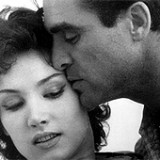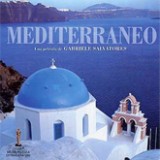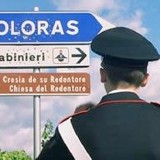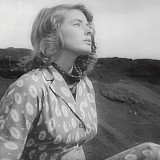Rejection, alienation, and total abandonment staged in a bleak winter in the Poe valley with constant use of gray landscapes, barren trees, foggish rain and lots of mud all the actors negotiate their way in – provide an apt juxtaposition between the emotional and the physical realities in this masterpiece by Antonioni. The film tells… Continue reading The Outcry – Il Grido (Michelangelo Antonioni – 1957)
Category: Drama
Mediterraneo (Gabriele Salvatores – 1991)
In tempi come questi, la fuga è l’unico mezzo che rimane per mantenersi vìvi e continuare a sognare. In times like these, escape is the only mean available for keeping alive and continue dreaming. – Henry Laborit This film opens up with this quote to set the stage for a simple truth; sometimes we need… Continue reading Mediterraneo (Gabriele Salvatores – 1991)
Light of My Eyes – Luce dei miei occhi (Giuseppe Piccioni – 2001)
Writing about this film, I decided not to talk about the plot, actors, angles, the director personal story-drivers and focus on just one aspect. The Luce dei miei occhi soundtrack. More often than not films’ soundtracks receive minor exposure, like the drummer who is sitting in the back where the lead-singer – in our context… Continue reading Light of My Eyes – Luce dei miei occhi (Giuseppe Piccioni – 2001)
La destinazione – The destination (Pietro Sanna – 2003)
Through the story of Emilio, a young carabiniere sent to a Sardinian village for its military training, the director Pietro Sanna gives us a picture of this culture that seems unchanged over the centuries. Emilio comes from Emilia Romagna (region in the North of Italy, on the Riviera of Adriatic sea), and the only idea… Continue reading La destinazione – The destination (Pietro Sanna – 2003)
Stromboli – Stromboli, Terra di Dio (Roberto Rossellini – 1950)
Known as the father of the Neorealist film movement with his emblematic masterpiece Rome Open City – Roma Citta’ Aperta (1945), Roberto Rossellini in 1950 decides to change direction. Seeing the role of cinema as mirroring a constantly evolving reality, he believes Italy has changed and there is no reason for producing more films about… Continue reading Stromboli – Stromboli, Terra di Dio (Roberto Rossellini – 1950)





